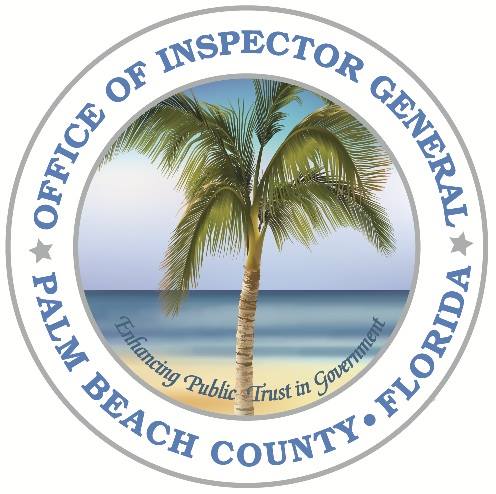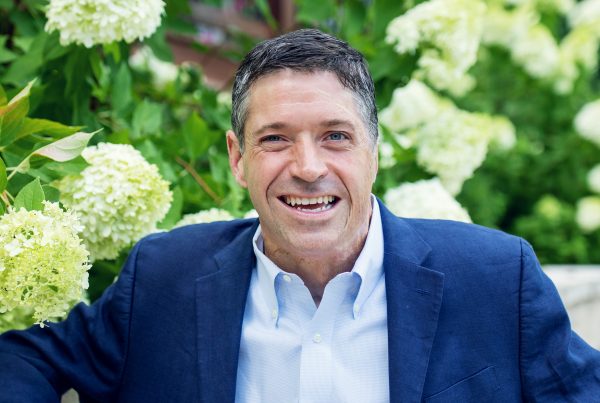Finally…everyone pitches in

It has taken more than four years, but a resounding vote in favor of better government in Palm Beach County at last may take effect. Boca Raton and Delray Beach could help to make that happen as soon as possible.
This week, Palm Beach County Circuit Court Judge Catherine Brunson ruled against 14 cities that had claimed that the system of paying for the Office of Inspector General is illegal because it amounts to double taxation. Boca and Delray are two of the cities in the lawsuit.
In 2009, at the recommendation of a grand jury investigating public corruption, the county commission created the Office of Inspector General and the Commission on Ethics. The inspector general takes complaints about misspending or other poor financial practices, and can refer matters to the state attorney if they seem criminal. Usually, however, the office issues reports on complaints it deems worth investigating, to determine if the complaint is valid. The ethics commission hears complaints about elected officials who may have violated the county’s code of conduct.
When the county created it, the Office of Inspector General had jurisdiction only over county government and only enough financing for a staff large enough to carry out that mandate. In November 2010, also at the grand jury’s recommendation, a referendum asked voters in the county’s 38 cities whether they wanted the inspector general to have jurisdiction over their municipality. The ballot language stated that the cities would pay a proportionate share of staffing the office to handle the new workload.
Every city approved the idea, by wide margins. It got 72 percent in Boca Raton and 73 percent in Delray Beach. The next summer, the county crafted an ordinance to implement the public’s wishes. Cities were advised to assess a 0.25 percent surcharge on contracts, since much of the inspector general’s work deals with contracting.
Those 14 cities, however, sued the county. (Though the Office of Inspector General is independent, it is a county agency.) The cities argued that the county was telling their residents to pay twice for the inspector general: through county taxes and through a city assessment. As Judge Brunson correctly noted in her ruling, though, “By approving the charter amendment, the voters in the respective municipalities approved (italics mine) the funding for (the Office of Inspector General.) This eliminated any discretion by the municipalities to avoid funding the program.”
Yet, led by West Palm Beach—whose legal staff did most of the work—resist they did. Making things worse, County Clerk Sharon Bock refused even to accept money from cities willing to pay, citing the lawsuit. Inspector General John Carey, who last year succeeded Sheryl Steckler, says the office needs about 40 positions to fully do its work. Because of the lawsuit, the office has just 23 budgeted positions—and has that many only because the county has paid more than its share.
Though lacking resources, the office still had jurisdiction over cities. The lawsuit didn’t stop that. Delray Beach especially has benefited from the office, even though resistance at first ran high among city officials.
In 2012, the office ruled that Delray had to put the trash-hauling contract out for bid. Then-City Manager David Harden and then-City Attorney Brian Shutt disagreed. That ruling helped the city void the contract—which the city commission had extended—and seek bids, which will save residents money. Last year, the office found that then-City Manager Louie Chapman had misled the city commission on a major purchase. The ruling helped the commission force out Chapman.
This week’s ruling gives Boca Raton and Delray Beach a reason to withdraw from the lawsuit. West Palm Beach still may appeal; there’s something almost glandular in the city’s hostility to the office. Boca and Delray, though, at last could acknowledge respect for their voters.
Indeed, the Boca council and Delray commission soon will have mostly turned over since the lawsuit was filed. When Mitch Katz succeeds Adam Frankel on March 31, Al Jacquet will be Delray’s only elected official whose service dates to 2011. By next month, just Mayor Susan Haynie and Councilman Mike Mullaugh will remain in Boca. In 2013, Haynie was on the losing side of a vote for the city to leave the lawsuit and to start paying.
If Boca and Delray drop out, the lawsuit will lose much of what little credibility it ever had. West Palm Beach is the largest city in the county, but Boca is second and Delray is fourth. Boynton Beach, the third-largest, never joined the lawsuit. Neither did Lake Worth and Royal Palm Beach, which are among the 10 largest. Wellington joined the lawsuit, but then dropped out. Jupiter, Palm Beach Gardens and Riviera Beach would remain, but Riviera Beach is the city where good government goes to die. Do Boca and Delray want to be its ally in this fight?
The motivation for the lawsuit probably hasn’t been money. According to the county’s most recent calculation, Boca Raton would owe about $179,000 a year and Delray Beach would owe about $156,000. Boca’s general fund budget is about $136 million; Delray’s is $103 million. Six of the cities in the lawsuit have a combined population of about 10,000. Gulf Stream would owe $3,500. For most residents, that’s rounding error in their personal wealth.
More likely, the real motivation is that those running the cities that sued just don’t like the idea of an inspector general. They don’t like the idea that someone can call the office anonymously, going around a city manager or a supervisor. They don’t like the idea of outside auditors questioning business as usual. Boca Raton got huffy in 2013 when the inspector general audited city credit card purchases and concluded that about $16,000 in charges didn’t meet a “public purpose,” such as tickets to a Greater Boca Raton Chamber of Commerce breakfast.
Mullaugh, who in 2013 voted to keep Boca Raton in the lawsuit, said Wednesday that he considers the lawsuit to have been a “legitimate” way to obtain what he calls a “proper funding formula.” But given the judge’s ruling, “if you can’t win with that, it’s time to move on.”
A spokesman for West Palm Beach Mayor Jeri Muoio said any appeal would be “a joint decision among all the cities involved in the case.” Delray Beach Mayor Cary Glickstein told me he has asked City Attorney Noel Pfeffer to “remove” the city from the lawsuit, assuming that hasn’t happened automatically with Brunson’s ruling. He said the item would be on the commission’s April 7 agenda.
This has been a lot of space for one issue, but people forget how bad Palm Beach County looked just a few years ago when five elected officials went to prison, one after the other. The grand jury, the Office of Inspector General and the Commission on Ethics were designed to shed the “Corruption County” label.
Lots of misinformation has been spread and stated in the campaign against the inspector general. Former Boca Raton Mayor Susan Whelchel said in 2013 that the inspector general is “controlled by the county.” Wrong. Carey reports to a seven-member appointed committee that includes no one from the county, elected or unelected.
As for the cities’ contention that voters somehow were confused in 2010, County Attorney Denise Nieman is right when she says the referendum was “very open.” The voters knew just what they were doing. For some alleged public servants, that’s been the problem all along.
Events R Us
From 7 a.m. until noon on Sunday, parts of Northeast Seventh Avenue in Delray Beach will be closed off for the Granfondo Garneau Florida cycling event. The trip will start at the Hyatt Place Hotel in Pineapple Park and will benefit the Gumbo Limbo Nature Center’s turtle program. Garneau sells cycling gear.
It sounds like a fun event. It also is another reminder that the city commission made as one its 2015 goals a review of just how many such events Delray should allow to shut down parts of the city. One person’s fun day on a bike can be another person’s hassle trying to get around town, even on a Sunday. By the city’s count, Delray stages 187 festivals and such each year.
But which ones to allow? City Commissioner Shelly Petrolia said the commission may be more inclined to favor events that promote health. Garneau organizers tout the “health and wellness” aspect of their event. Mayor Cary Glickstein wants the staff to keep approving most events, as is the system now, but he wants the commission to “revisit policy as to the application criteria (size, traffic impact, quantity and quality of events, road closures, facility impacts, payment) and how staff approves applications.”
As with so many “problems” in Boca Raton and Delray Beach, the problem of too many events wanting the city as a venue is a good problem to have.
Sober house bill update
Bills to require certification of the “sober houses” that have proliferated in Boca Raton and Delray Beach continues to move through the Legislature.
The Senate version, sponsored by Jeff Clemens—a Democrat from Lake Worth—has passed two committees by a combined 12-0 vote. It has gone to the Appropriations Committee, which would be its last stop before a full Senate vote.
The House version, sponsored by Bill Hager—a Republican from Boca Raton—also has had no negative votes. On Tuesday, it was scheduled for a floor vote.
••••••••
You can email Randy Schultz at randy@bocamag.com
For more City Watch blogs, click here.About the Author
Randy Schultz was born in Hartford, Conn., and graduated from the University of Tennessee in 1974. He has lived in South Florida since then, and in Boca Raton since 1985. Schultz spent nearly 40 years in daily journalism at the Miami Herald and Palm Beach Post, most recently as editorial page editor at the Post. His wife, Shelley, is director of The Learning Network at Pine Crest School. His son, an attorney, and daughter-in-law and three grandchildren also live in Boca Raton. His daughter is a veterinarian who lives in Baltimore.







